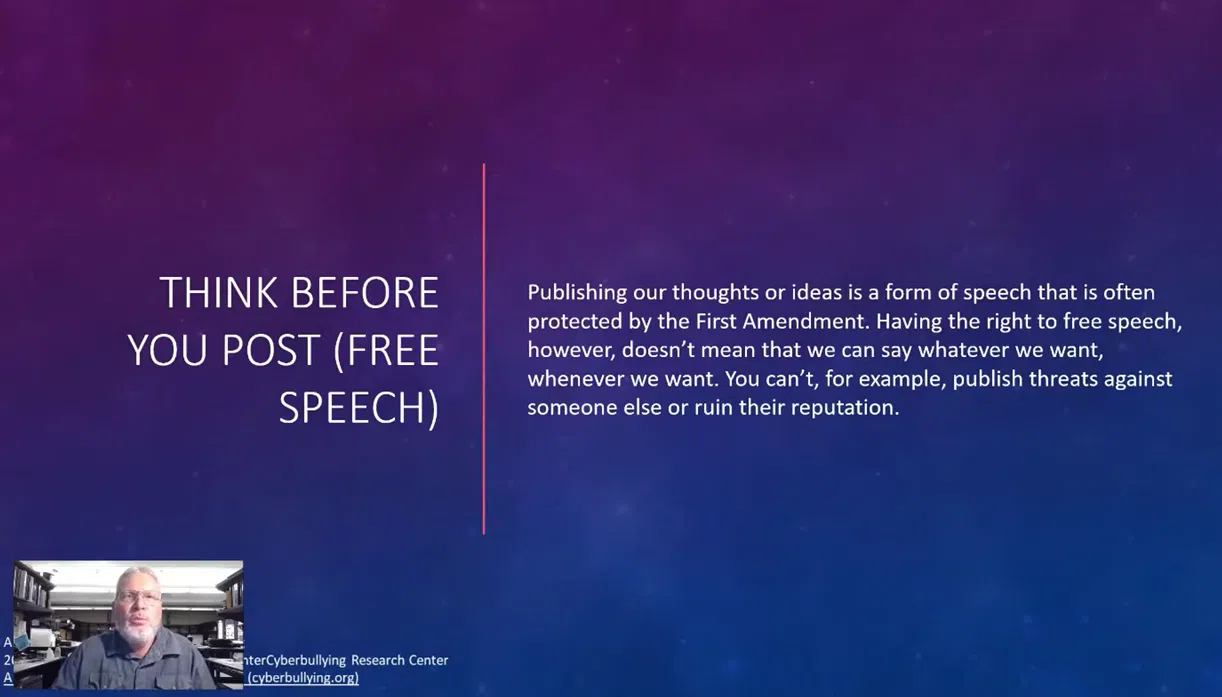Social media is a useful tool for law enforcement, businesses, nonprofits and even personal connections. However, there are obvious — and not-so-obvious — issues with social media.
On Monday night, Emporia State’s Master of Science in Forensic Science Seminar Series brought in Mark Phillips, a digital forensic examiner with the Johnson County Sheriff’s Office, for a Zoom meeting titled, “Social Media and the Internet — Friend or Foe?” Phillips says social media has been a welcomed tool to connect family or friends near and far, especially during the COVID-19 pandemic the last two years.
On the flip side, social media can have all kinds of negative impacts on mental health. FOMO — the “fear of missing out” — and other social media trends could well lead to addiction.
Phillips discussed cyberbullying, including doxxing — where people essentially dump another person’s private information online. He also encouraged people to verify their social media contacts, don’t share personal details, limit details about work history and adjust privacy settings as needed.
Phillips also went into social media’s benefits and hazards for officers of the law. He says law enforcement uses social media now for several issues, such as seeking information about crimes or promoting community service activities. However, law enforcement can also be victimized by social media, especially in cases of “swatting,” where somebody falsely reports a dangerous situation to 911 as a way to prompt a heavy law enforcement response. Swatting led to an incident where Wichita Police shot and killed a man in his home back in 2017. The suspect was later sentenced to 20 years in prison.
Phillips closed his presentation with a four-step ” social media detox” challenge, including tracking your mood for five days with normal social media use, deleting social media apps for 25 days, using those 25 days to set goals and track moods before sharing the results — on social media.





















